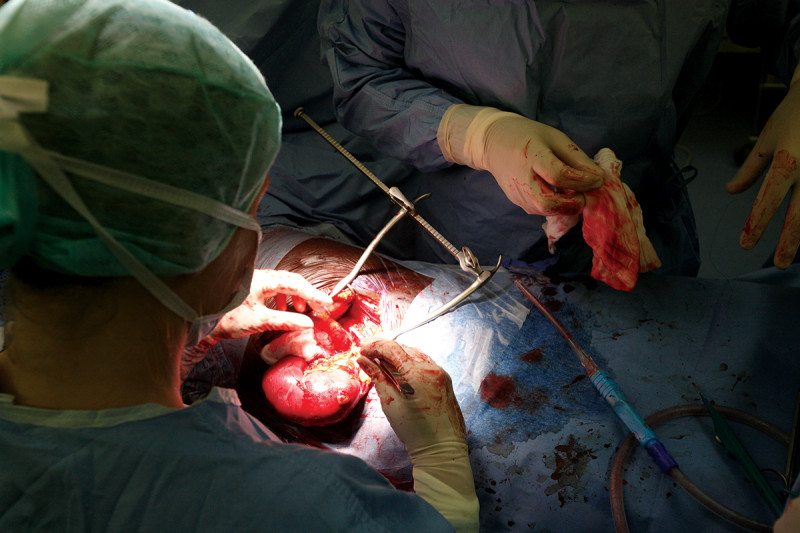“More than 3,000 donated kidneys are discarded every year in the U.S., even as thousands of people die on kidney transplant waitlists. About a fifth of all donated kidneys — particularly those from people who are older, have metabolic or cardiovascular conditions, or have died — are deemed poor quality. Doctors and patients often refuse such kidneys rather than risk transplanting an organ that might not work.”
Read the full article, here.
Kentuckians Need Congress to Approve Lifesaving Bill for Kidney Transplant Recipients
“The COVID-19 public health emergency has revealed painful weaknesses, inefficiencies and inequalities in our health care system. As a result, the public is looking to elected leaders to enact policies that improve our health system, protect at-risk populations and allocate government resources more wisely. Fortunately, there is a bipartisan, common-sense proposal in Congress that could achieve all of those goals for a particularly vulnerable part of the American population: kidney transplant recipients.”
Read the full article, here.
New-Onset Gout as an Independent Risk Factor for Returning to Dialysis After Kidney Transplantation
“Background: The causal relationship between gout and renal transplant outcomes is difficult to assess due to multiple interacting covariates. This study sought to estimate the independent effect of new-onset gout on renal transplant outcomes using a methodology that accounted for these interactions.”
Read more, here.
10 Patients, 5 Kidneys, 1 Story That Will Restore Your Faith in Humanity
“More than 100,000 people are waiting on the kidney transplant list, with some waiting for weeks, months, or even years for the call that could change their life.
That makes what happened at Houston Methodist in October even more extraordinary.
Ten people, including a husband and wife, a boss and her employee, a mother and son, two sisters, and two cousins, took part in a kidney swap. The five pairs were strangers before they walked into the hospital and left with a life-long bond.
Tara and John “HB” Berliski from Magnolia, Texas, have been married for 15 years.
HB started experiencing pain 20 years ago and thought he pulled a muscle. Doctors soon discovered his kidneys were enlarged because of polycystic kidney disease. HB had both kidneys removed, went on dialysis, and waited for a donor.”
Read the full news story, here.
It’s time for Congress to keep its promise to kidney transplant patients
“In 1972, as millions of Americans living with end-stage renal disease (ESRD) struggled to access care, Congress made a commitment to cover the rising costs of their treatment, including kidney transplant. Unfortunately, almost 50 years later, this commitment remains unfulfilled.
Kidney transplant patients must remain on immunosuppressive therapy for life or risk losing their transplant. For nearly two decades, the kidney, transplantation, and donation communities have been advocating to extend immunosuppressive medication coverage for kidney transplant patients beyond Medicare’s current three-year limit.”
Read the full article in POLITICO, here.
To take action and help Finish The Fight, contact your members of congress, here.
American Kidney Fund Statement on CBO Score for H.R. 5534, Comprehensive Immunosuppressive Drug Coverage for Kidney Transplant Patients Act of 2020
“The American Kidney Fund is pleased with the Congressional Budget Office’s (CBO) scoring of H.R. 5534, the Comprehensive Immunosuppressive Drug Coverage for Kidney Transplant Patients Act of 2020, which estimates the bill will reduce direct federal spending on Medicare benefits for some kidney transplant patients by $400 million over 10 years.
“H.R. 5534 will add a new Medicare coverage option solely to cover immunosuppressive drugs used by kidney transplant patients under age 65. People with transplants must take immunosuppressive drugs or their body will reject the transplanted organ. For people with a kidney transplant, the devastating impact of losing their kidney means they will have to go on dialysis or try to find another kidney-a daunting task with close to 100,000 people on the wait list.”
Read the full statement by AKF, here.
Advancing American Kidney Health can Improve the Transplant Rate
“Transplant is widely considered the preferred modality of renal replacement therapy for patients with irreversible kidney failure.
Transplant is more effective at replacing kidney function than dialysis and provides most patients with a better quality of life, as well as an increased opportunity to participate in the work force.
Despite the advantages offered by transplant, fewer than one in 10 adults with kidney disease receive a kidney and 12 candidates die each day on the waitlist. Policy makers must take aggressive measures to help more patients seek a transplant and increase the number of available kidneys.”
Read the full article, here.
After Chance The Rapper’s Aunt’s Wait For Kidney Donation Was Subject Of Viral Tweet, A Donor Changed Her Life
“It is a reality for more than 3,000 people in Illinois who are waiting on a donation. CBS 2’s Tara Molina on Thursday night introduced us to one woman whose wait went viral last year – and the donor who stepped in to change her life.
Two lives changed at the University of Illinois at Chicago Medical Center. Toni Barnes Jordan got a second chance at life, while Maranda Proce got a friend for life.
And it was all because of a tweet. One single tweet from Chicago native Chancelor Johnathan Bennett, better known as Chance the Rapper.
“We were sitting on my back deck and he said, ‘I’m going to tweet this right now,’” Jordan said.
That is how it all started.”
Read the full story, here.
U.S. Army Veteran Gets Triple the Chance At Life, with Utah’s First Triple Organ Transplant
“Decades of planning put physicians at University of Utah Health in the position to save a United States Army veteran whose life was hanging by a thread, as three of his major organs were failing.
“He was so, so, so, so sick,” said Dr. Craig Selzman, surgical director of the heart and lung transplant program at University of Utah Hospital. “We didn’t really think he had a chance.”
Keith Baker, 58, started with heart failure, a condition that worsened over time and ultimately caused irreparable damage to his kidneys. Not long after that, the Yuma, Arizona, native was diagnosed with cirrhosis of the liver. With triple organ failure, he was not believed to be a good candidate for transplant, said Dr. Josef Stehlik, surgeon and director of the heart transplant program at the U.”
Read the full story, here.
‘Kidney’ vs ‘Renal’: Experts Say Words Matter
Most Patients Don’t Know What Renal Means
“KDIGO collaborated with Standardised Outcomes in Nephrology (SONG) to conduct 10 focus groups with 54 patients and 13 caregivers from the United States, United Kingdom, and Australia. These revealed the patients’ attitudes and experiences with language commonly used to describe kidney diseases and care.
Some patients said that “end-stage kidney disease” sounds like impending death, and most did not know what “renal” meant.”
Read the full article, here.








